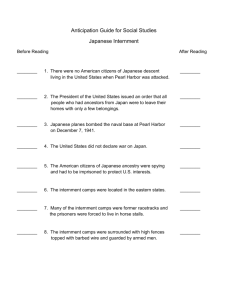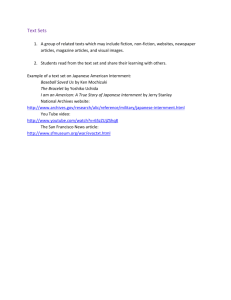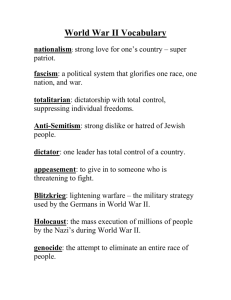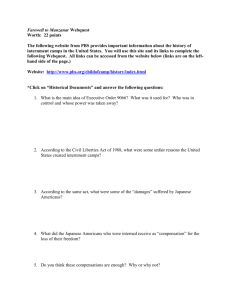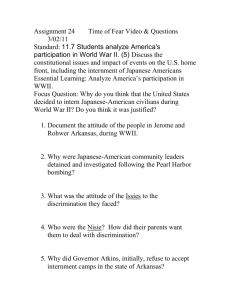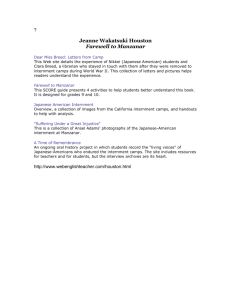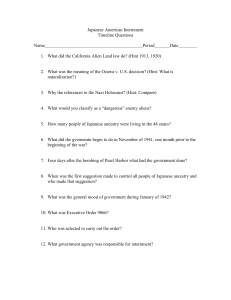3 - The Knotted Line
advertisement
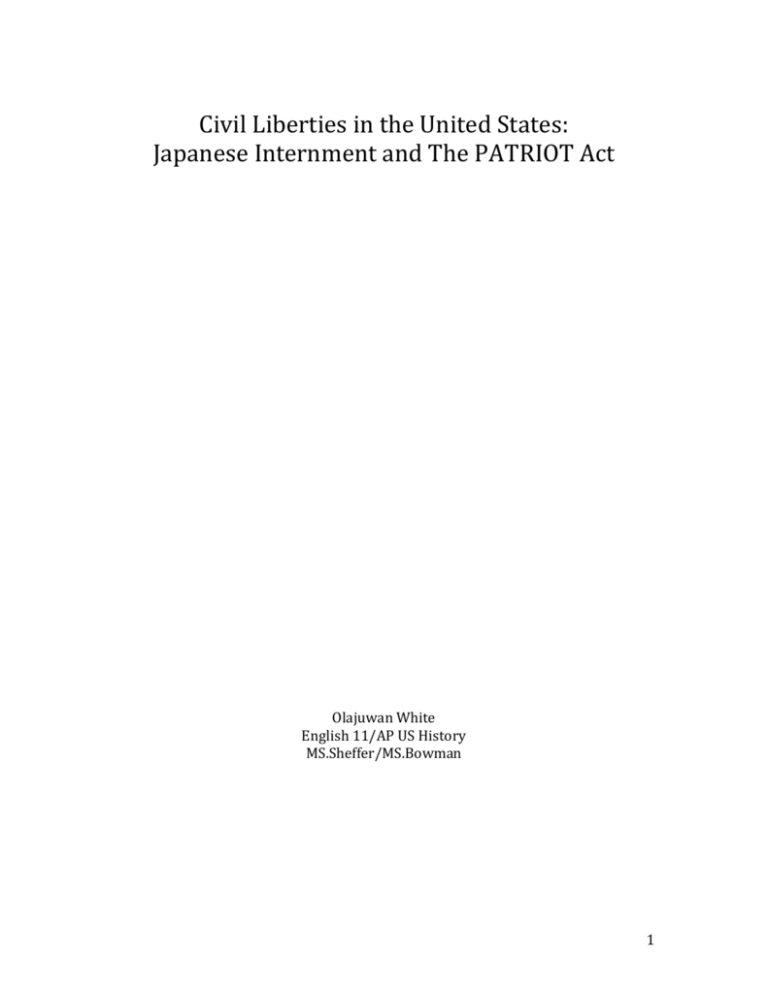
Civil Liberties in the United States: Japanese Internment and The PATRIOT Act Olajuwan White English 11/AP US History MS.Sheffer/MS.Bowman 1 Picture yourself at home enjoying the day watching the news. Then all of the sudden a group of officers burst into your room saying you are under arrest. You are confused as to why when one officer informs you your uncle committed a crime and now you are under arrest as a suspect because of who shares the same DNA as you. You are then held and receive no opportunity to see a judge and are denied your constitutional rights. This same kind of scenario happened to the Japanese-Americans during World War 2 and all Americans in today’s era. In all 3 situations these people were persecuted and imprisoned. The PATRIOT Act and Japanese internment were unconstitutional because they denied basic constitutional rights from the people born in the United States. During WWII after the bombing of Pearl Harbor by the Japanese the US government was very skeptical of the Japanese-Americans and their loyalty to the United States, although most were not loyal Japan and a lot were actually second or later generation in the US. To deter any top secret information from going to Japan by way of Japanese- Americans the US government decided to relocate Japanese-Americans into internment camps all over the West coast of the US. This caused many JapaneseAmericans to lose their homes, businesses, and jobs. While in these camps JapaneseAmericans “faced many hardships together” For example, their homes were “small shacks that fit anywhere from one to three families”. Also there was little food and temperatures were extremely either cold or hot. All of this happened to JapaneseAmericans, an entire race of people, were imprisoned without each being convicted of a crime. This is why the Japanese American imprisonment was unjustifiable and unconstitutional. 2 Another modern day act that overshadows American’s constitutional rights is the PATRIOT Act. The PATRIOT Act was an act passes by Congress a month after 9/11 and was not thoroughly gone over. This Act overthrows many of the constitutional rights for “national security”. For example it allows for Americans to be imprisoned without a trial and be refused a attorney such as the Japanese Americans during WWII. It also allows for the suppression of freedom of association. This has led to the a unknown number of people being put into some form of prison because of this act and its power over the constitution. This is why the PATRIOT Act is unconstitutional. Both the Patriot Act and the Japanese-American Internment are both unconstitutional acts that happened to American civilians. Both events suppressed rights that were guaranteed to them. The Japanese internment event was in the past and has since then been given reparations for which was a good thing, however the real thing that should of happened was that a lesson should have been learned from this incident. That during a time of war we cannot declare martial law and erase everything that gives liberty to the citizens of a nation. 3 Works Cited Infoplease. Infoplease, n.d. Web. 12 June 2012. <http://www.infoplease.com/spot/internment1.html>. "Japanese Internment." Japanese Internment. N.p., n.d. Web. 12 June 2012. <http://www.u-shistory.com/pages/h1679.html>. "World War Two - Japanese Internment Camps in the USA." World War Two. N.p., n.d. Web. 12 June 2012. <http://www.historyonthenet.com/WW2/japan_internment_camps.htm>. 4 Author Biography Olajuwan White was born in 1995 in Oakland, California. He is currently attending Castlemont High School and plans to later attend college and get a degree in Mechanical and Electrical Engineering. He lives in Oakland with his family. 5

